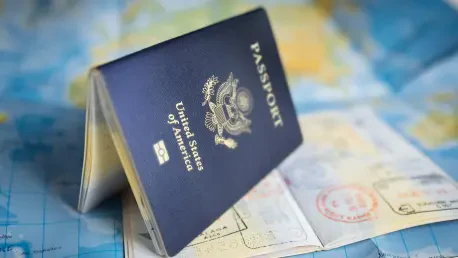As UK consumer spending on package holidays climbs steadily in the post-pandemic era, the government is taking significant strides to safeguard travelers while simultaneously propelling industry growth. In an initiative to revise and augment existing legislation, the UK government has launched a consultation on proposed reforms to the Package Travel and Linked Travel Arrangements Regulations 2018 (PTRs). These reforms are intended to provide a bespoke framework of protections tailored to the needs of modern travelers, promoting transparency and efficiency within the travel sector.
Proposed Changes to Package Travel Regulations
Redefining Domestic Travel Considerations
Central to the proposed reforms is the call to exempt domestic holidays that do not incorporate any travel component from the PTRs. This specific measure seeks to invigorate the UK’s travel market, encouraging the growth of accommodation and service offerings that are exclusively local. By maintaining a clear delineation between staycations and fully-fledged travel packages, businesses can streamline their offerings without encountering unnecessary regulatory encumbrances. Additionally, simplification of Linked Travel Arrangements (LTAs) is on the agenda. LTAs, which involve separate contracts for various travel-related services, can be challenging to navigate. The government aims to refine these processes, making it easier for consumers and businesses to understand their legal obligations and the protections in place.
Regulatory simplification will empower businesses to innovate and expand within a clear legal landscape, fostering diverse and flexible consumer offerings. Ultimately, such refinement is designed to enhance consumer trust, ensuring they gain clarity on the services they are purchasing. As the conversation around these proposals continues, the focus remains on striking a balance between adequate consumer protection and a regulatory environment that encourages innovation.
Enforcing Regulatory Compliance and Addressing Third-Party Issues
The government is keen on fortifying the enforcement mechanisms tied to consumer protection under the PTRs. The Competition and Markets Authority (CMA), equipped with new powers under the Digital Markets, Competition and Consumers Act 2024, will play a pivotal role in this endeavor. One of the crucial features of these powers includes the authority to impose penalties of up to 10% of a business’s annual turnover for breaches in consumer law. This robust enforcement capability is meant to ensure that travel businesses adhere to established guidelines while delivering a superior standard of service to travelers.
To address practical concerns, the proposal introduces potential time limits for organizers regarding third-party redress. The introduction of time constraints serves multiple purposes, most significantly providing clarity and predictability in dispute resolution processes. This structured approach to resolving disputes encourages both consumers and businesses to engage in responsible and fair practices within the industry. As such, the reforms aim to construct an equitable ecosystem where both operators and customers benefit from a transparent, well-regulated market.
Wider Implications and Future Prospects
Integration with Broader Travel and Aviation Regulations
Beyond the PTRs themselves, these proposed changes are part of a broader consultation that extends to travel and aviation regulations, overseen by the Department for Transport. A comprehensive review of the ATOL (Air Travel Organizer’s License) regime is also underway, providing an opportunity to reassess consumer protection and refund mechanisms linked to air travel. By examining how these different regulatory frameworks can cohesively operate, the government seeks to galvanize growth across all facets of the travel industry. There is a significant push to simplify processes, involve stakeholders at every stage, and foster a culture of trust between consumers and service providers.
The ongoing consultation highlights the potential for fresh approaches that integrate regulatory demands with the operational realities of modern travel businesses. This progressive vision underscores the importance of adaptive legislation that echoes the dynamic nature of the travel sector while prioritizing consumer safety and satisfaction. As businesses navigate this evolving landscape, the emphasis remains on leveraging regulatory changes to enhance consumer experience while optimizing operational efficiency.
Conclusion: Embracing a Dynamic Regulatory Landscape
As consumer spending on package holidays sees a steady rise in the UK post-pandemic, the government is actively working to protect travelers while encouraging industry expansion. The UK government is embarking on a significant initiative to revise and enhance existing laws, launching a consultation on potential reforms to the Package Travel and Linked Travel Arrangements Regulations 2018 (PTRs). This effort aims to establish a customized framework of protections that cater to the demands of today’s travelers, fostering both transparency and efficiency in the travel industry. The proposed reforms seek to address the evolving patterns in travel preferences and technological advancements, ensuring that consumers are better informed and safeguarded throughout their travel experiences. By adapting regulations to meet modern requirements, the government not only aims to bolster consumer confidence but also invigorates industry growth, providing a robust foundation for a flourishing travel sector in the contemporary era.









